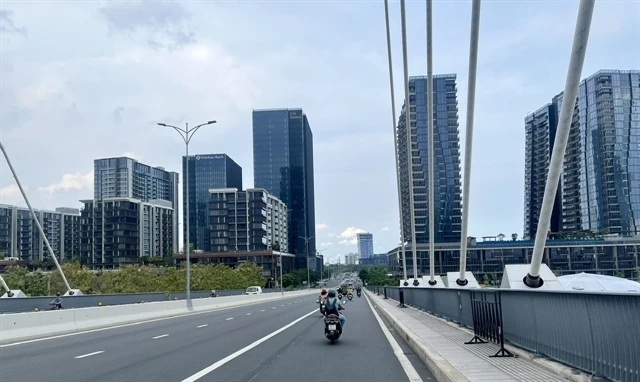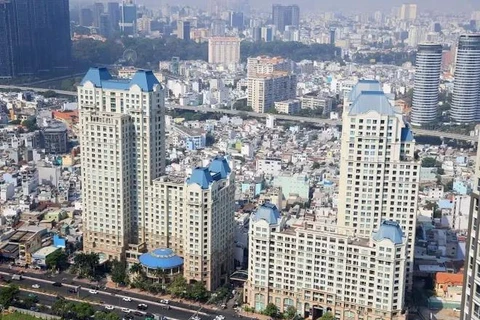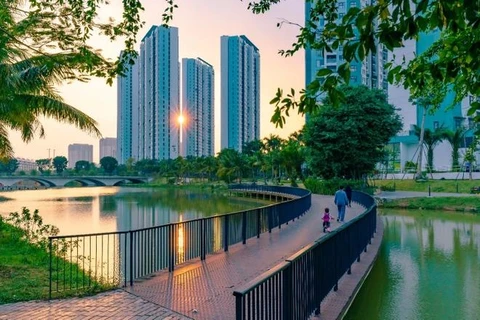
HCM City (VNS/VNA) - Real estate revenue in Ho Chi Minh City reached 124 trillion VND (4.9 billion USD) in the first half of the year, up 6.1% year-on-year, according to the HCM City Statistics Office.
The real estate market has shown signs of recovery this year, with 3% growth in the second quarter and 2.5% in the first quarter, after a 6.4% decline last year from 2022.
The market hit its lowest point in the first quarter of 2023 with a negative growth rate of 16.2%.
Le Hoang Chau, Chairman of the HCM City Real Estate Association (HoREA), said the market continues to face challenges such as an abundance of high-end housing and a shortage of affordable housing, particularly social housing.
Industry analysts remain optimistic about the market’s outlook, expecting benefits from increased foreign direct investment in the real estate sector and revisions to the Land Law.
Foreign direct investment in the property sector was up 70% year-on-year to reach over 1.98 billion USD as of the end of May.
The influx of foreign capital, accounting for 18% of total FDI, makes the property sector the second most attractive sector after manufacturing.
HCM City’s strategic location and robust infrastructure make it an attractive investment destination for foreigners, particularly its real estate sector, said industry analysts.
Competitive prices in the property market, especially in HCM City, have lured the interest of many foreign investors, they noted.
A report by Cushman & Wakefield has noted a positive outlook for foreign investment in the Vietnamese property sector from 2024 to 2026, driven by low interest rates and various supportive Government policies.
Major investors from countries such as Singapore, Hong Kong, mainland China, Japan, and the Republic of Korea are increasingly interested in the high-end and luxury segments in Vietnam, with Singapore leading the way with nearly 3.25 billion USD in investments in the first five months, according to the report.
Industry analysts also expect the market to benefit from the revisions to the Land Law to take effect on August 1.
They are expected to increase the supply of social housing by encouraging enterprises to invest in the segment.
They will particularly benefit two main groups: overseas Vietnamese and individuals who are resettled and have received compensation.
It allows overseas Vietnamese to buy houses in Vietnam and get ownership, which is expected to attract more investment from them.
It also stipulates that resettlement areas must meet conditions related to technical and social infrastructure.
But the property sector has admittedly been facing challenges such as debt repayment pressures, fraud and other financial scandals.
Numerous bond issuers, mostly real estate developers, have missed interest and principle payment deadlines since the end of 2022 following the arrest of Truong My Lan, chairwoman of Van Thinh Phat, for financial fraud.
This has shaken market confidence.
Despite multiple challenges facing the city, its Gross Regional Domestic Product (GRDP) grew by 6.46% in the first half of the year.
The country’s largest city aims to achieve a yearly growth rate of 7.5-8%./.






















